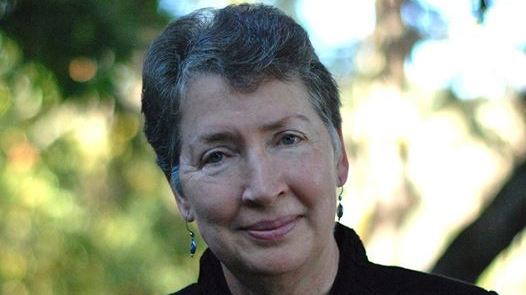With ‘Chemistry for Cooks,’ Sandra C. Greer ’66 explores the science on our plate

What does chemistry have to do with your family feast? Quite a lot if you brine your turkey.
And along with why you shouldn’t season steak right before grilling, it’s one of the many fun facts explaining science and food preparation in “Chemistry for Cooks,” a new book by Sandra C. Greer ’66.
“It is a textbook, but it’s accessible to the general reader,” she said.
The book, which she described as her Covid project, “assumes you know absolutely nothing about chemistry.” It opens with a chapter about atoms and molecules, and is followed by another on water because it’s so central to cooking.
The book includes some organic chemistry, “but not enough to scare anybody,” said Greer, as well as information on nutrition, taste, the main categories of food and, of course, the vital role of sodium chloride, or salt. Published in 2022 by MIT Press, the book sprang from a college chemistry course she taught.
Each chapter features recipes, like her mother’s favorite fruit cobbler, and uses science to analyze them. For instance, she details the chemistry behind brines, or diffusion, which is the movement of a substance like salt in water, and osmosis, the brine moving into the cell membrane of the turkey.
An Upstate native, Greer attended Greenville and Hillcrest high schools before she was invited in her junior year to attend Furman on a full scholarship, replaced the next year by a full National Merit Scholarship. As she competed in regional science fairs over the years, she’d come to know some of the judges, including Furman Professor Donald G. Kubler, who had let her work in Furman’s science labs.
Recognizing that she was bored in high school, it was Kubler, later an important mentor, who suggested she skip her senior year and come to Furman. Her time at Furman collided with the turbulent 1960s and racial integration and women’s rights.
“There were still restrictions on how women dressed – no pants on campus – and we had to attend church on Sunday,” she recalled. “Integration began while I was at Furman.”
Along with a “terrific education” and a “good foundation for life,” Greer made lifelong friends at Furman.
After graduating with a degree in chemistry, she earned her master’s degree in 1968 and her Ph.D. in 1969 from the University of Chicago.
Those were difficult days for women to get work in academia or industry.
“Government was a good place for women scientists to find a job,” she said.
Married in grad school, Greer’s husband had gotten a post-doctoral fellowship to what is now the National Institute for Standards and Technology. She also got a research appointment there and a year later, she gave birth to twin sons, one of whom, Andrew Sean Greer, won a 2018 Pulitzer Prize for fiction for his book “Less.”
Then in 1978, she took a position as professor of chemistry at the University of Maryland, where she spent the next 30 years teaching, doing basic research and running a laboratory.
“My research was in the general area of phase transitions and polymer solutions,” things like how liquids mix and unmix, how polymer molecules dissolve in solutions, she said.
In 2008, Greer moved to California to be closer to her sons and took a job as provost and professor at Mills College. There she saw the need to offer a science course that wouldn’t intimidate students: chemistry for cooking was launched.
“The students were very excited about it and 30 signed up immediately,” she said.
Along with teaching the science, Greer held cooking demonstrations to illustrate the facts, which the students enjoyed.
“It changes the way you think about cooking,” she said.
While not Furman’s first woman with a chemistry degree, Greer said she was the first woman chair of the chemistry department at the University of Maryland, where a seminar room in a new chemistry building will be dedicated to her in April.
“Chemistry for Cooks” is Greer’s second book since retiring. The first, another text on ethics for scientists “never took off, though it’s still available on Amazon,” she said.
“Fortunately,” said Greer, “this one is doing pretty well.”